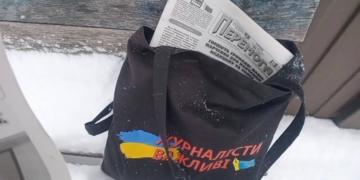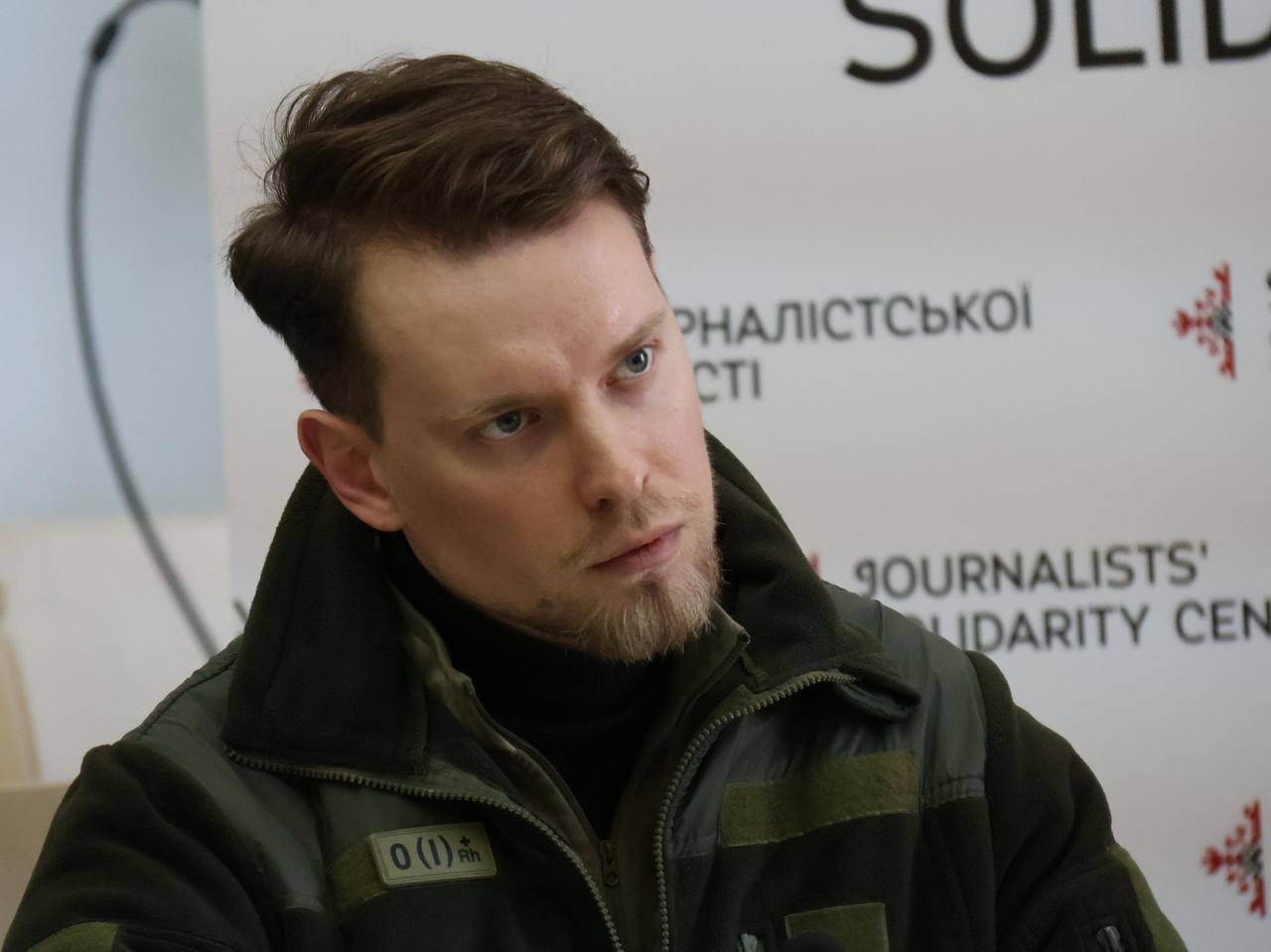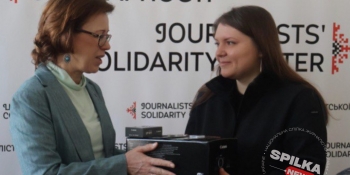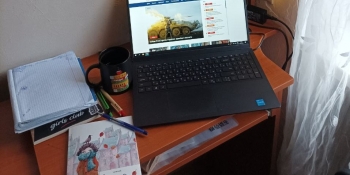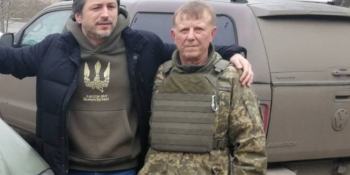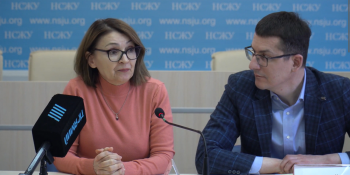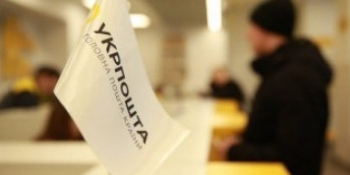Pre-trial investigations in 34 criminal proceedings investigating the circumstances of death, injury, and illegal imprisonment of journalists due to Russian armed aggression are being investigated (as of March 14, 2023) by specialists of the Security Service of Ukraine (SSU). Among these proceedings are those related to the death of photojournalist Maksym Levin, Lithuanian film director Mantas Kvedaravicius, and French journalist Frederic Leclerc-Imhoff.
SSU spokesperson Artem Dekhtiarenko announced this during the roundtable Current State Of Investigation Of Russia’s War Crimes Against Journalists organized by the National Union of Journalists of Ukraine (NUJU).
Representatives of the SSU Artem Dekhtiarenko, Andrii Kot, and Vitalii Mayakov participated in the roundtable, among other law enforcement officers.
“We believe that the contribution of both Ukrainian and foreign journalists to the struggle on the information front is hard to overestimate,” said Artem Dekhtiarenko. “The mass media tell the world the truth, among other things, about the atrocities that the Russian military commits on our land. The SSU is one of the main structures that investigate war crimes. Since the start of the full-scale invasion, SSU investigators have investigated over 31,000 criminal proceedings under Article 438 of the Penal Code of Ukraine (violations of the laws and customs of war). According to this article, criminal proceedings about journalists’ deaths during the war are being investigated.”
The pre-trial investigation of crimes committed against journalists is underway. The SSU is taking comprehensive measures to identify the guilty. The Russian armed forces units in the areas where the journalists were killed have been identified.
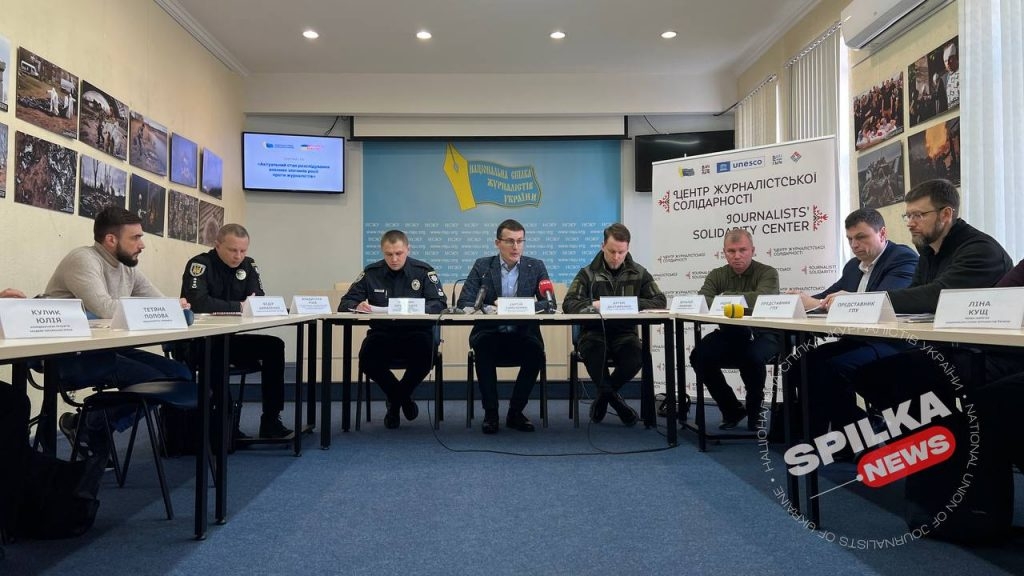
“Evidence collection is complicated because some of these areas are temporarily occupied. But war crimes do not have a statute of limitations, and the perpetrators, from those who gave the relevant orders to those who pulled the trigger, will be brought to justice,” the SSU spokesperson emphasized.
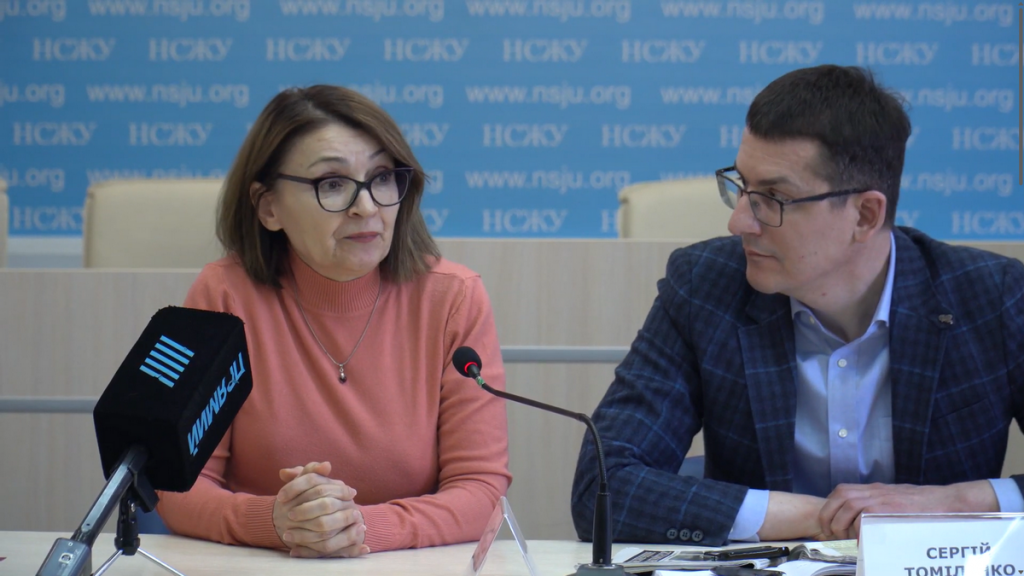
Volunteer Liudmyla Huseinova, who spent three years in captivity, including in the infamous Isolation prison, speaking at a roundtable, asked about the achievements of the SSU regarding the actual punishment of war criminals since 2014.
According to Artem Dekhtiarenko, since then, the SSU has brought to justice many militants and other criminals who, for various reasons, secretly came to the government-controlled territory of Ukraine, and some managed to be lured here.
Artem Dekhtiarenko noted that interdepartmental and interstate cooperation was established in the course of investigations, and an interdepartmental group headed by representatives of the prosecutor’s office was created.
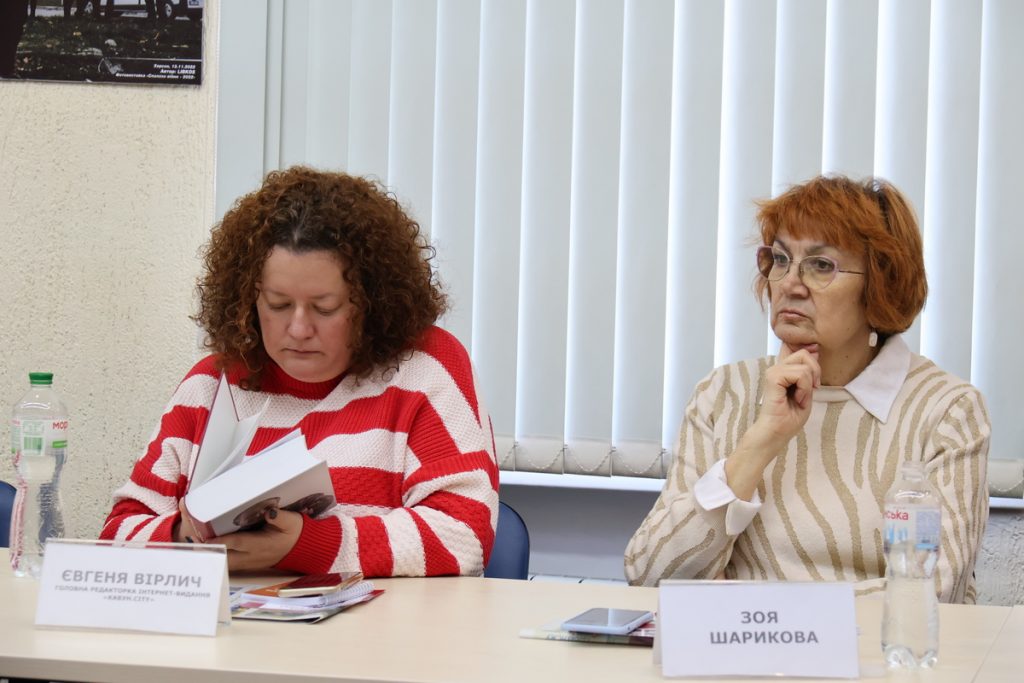
During the roundtable, Kherson-based journalist Yevheniya Virlych noted that during the occupation, when she and her family had to hide in other people’s homes, the factor that caused the greatest fear for them was the fact that journalists were handed over to the occupiers by former colleagues who started cooperating with the enemy.
“We understood that no one knows the specifics of our work as well as other journalists,” said Yevheniya Virlych. “We were very happy that very few colleagues started to cooperate with the Russians. However, now there is a tendency for traitors to pretend to be pro-Ukrainian or at least non-pro-Russian journalists. They destroy traces of their cooperation with the occupiers, including in the media field.
Another journalist, a displaced person, Olena Kalaitan, who headed the editorial office of Pryazovskyi Robochyi in Mariupol and the Donetsk regional organization of the NUJU, noted that she was sadly surprised by the unexpected behavior of some of her colleagues who went to cooperate with the occupiers.
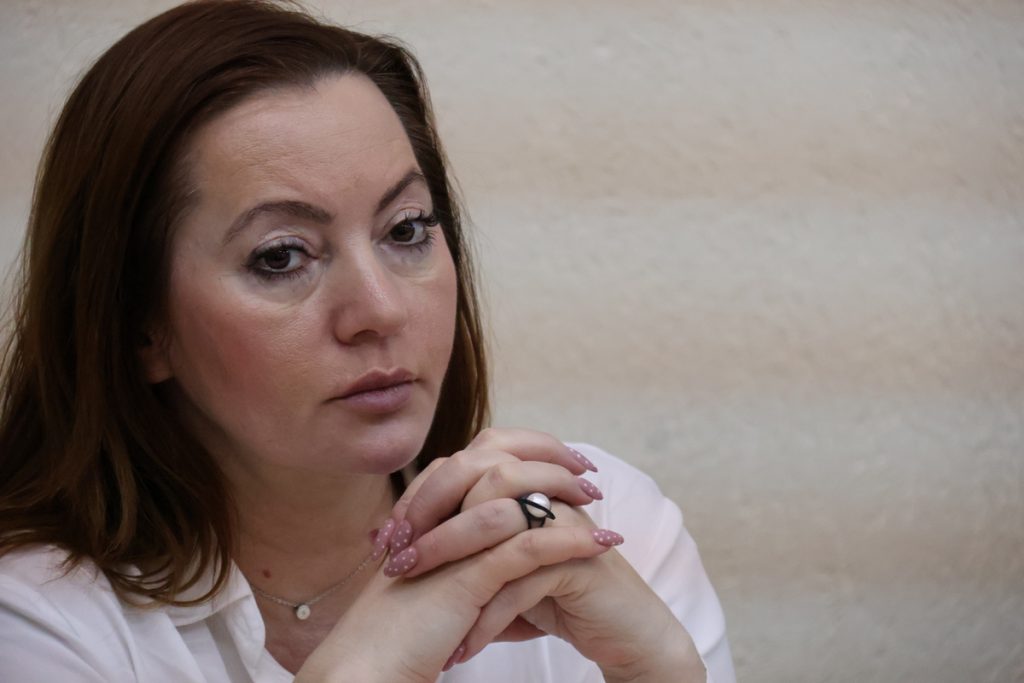
“We cooperate with law enforcement agencies, with the SSU, we provide information about journalist collaborators. The situation in the occupied territories is complicated. Propaganda information spread by collaborators easily gets into people’s heads, and even those who are now leaving Mariupol are already “stitched” with Russian propaganda,” said Olena Kalaitan.
She added that the journalists of the Donetsk Region honor the memory of the fallen colleagues Viktor Diedov, Yevhen Bal, Natalia Kharakoz, and many others, whose fate will obviously be impossible to determine. But the people of Mariupol already have a strategy for reviving the city after its liberation by Ukraine.
Yevheniya Virlych and Olena Kalaitan wanted to know whether the SSU had methods of confronting the efforts of collaborators to hide their cooperation with the occupiers.
To this, Artem Dekhtiarenko said that the investigative department of the SSU is actively investigating proceedings under Article 111-1 of the Penal Code of Ukraine (collaborative activity).
“At first, our special operations center Alpha together with the Defense Forces liberates the territory of Ukraine, then in the course of stabilization measures, together with our partners from the National Police and other law enforcement agencies, we conduct a quarterly survey of residents in the de-occupied territory, find out all the facts of criminal activity during the temporary occupation. None of the cases of collaborative activity will remain outside our attention,” said Artem Dekhtiarenko. “Just last week, we served with the suspicion a representative of the Kherson TV channel, who cooperated with the occupiers and glorified the aggressors. Unfortunately, during the occupation, she fled to Russian territory. She has been declared wanted.”
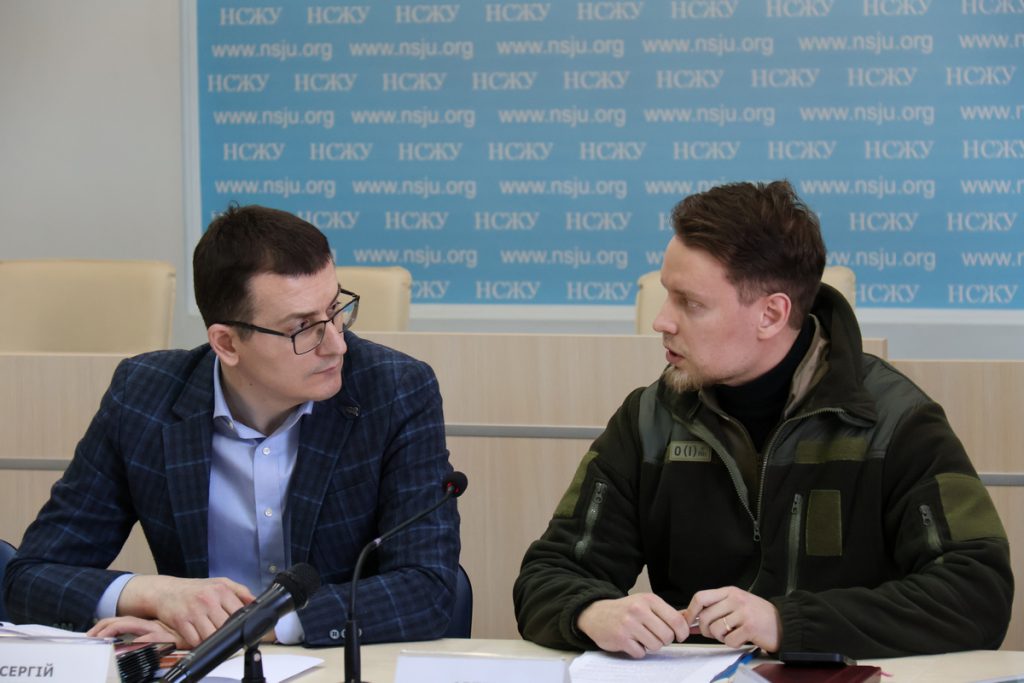
Artem Dekhtiarenko thanked the caring Ukrainians who helped uncover the enemy’s crimes.
“Despite the attempts of the proponents of the so-called Russian World, Russian agents, to anonymize their presence on the Internet, using fictitious accounts, we detect them in “packs,” whole agent networks. In particular, just a day before the roundtable, a network of eight disseminators of destructive content, hostile agitators was exposed,” said Artem Dekhtiarenko.
NUJU information service





